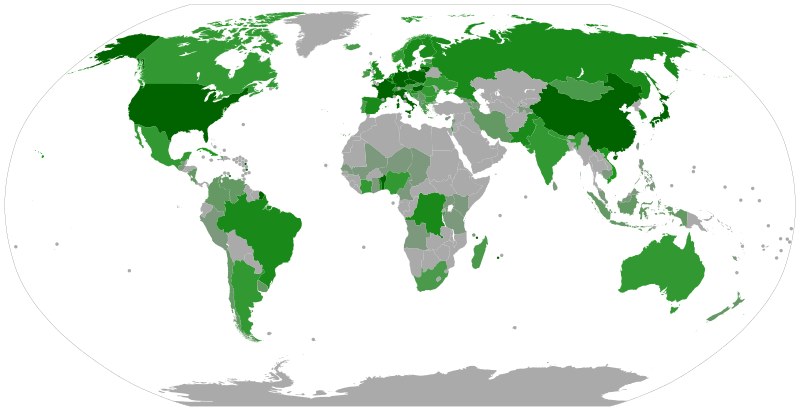Being Globally Bilingual for Global Education
|
Esperanto is a language designed,125 years ago, especially for the purpose of being easy to learn and supporting positive intercultural communication.
This map shows in green the countries which have national Esperanto associations. There have been a couple more formed in the Middle East and Africa since the map was made in 2008). Individual Esperanto speakers, smaller clubs and single schools also exist in other countries. The number of speakers is few million (still in the top 30 languages by size!) but they represent the most diverse cross-section of the global populace that can be accessed in any one language ...except maybe English, but that just leaves us twiddling our thumbs and underachieving! |
|
Global education is enabling young people to participate in shaping a better future for the world. It emphasizes the unity and interdependence of human society, developing a sense of self and appreciation of cultural diversity, affirmation of social justice and human rights, as well as building peace and actions for a sustainable future in different times and places.
Global education promotes positive values and assists students to take responsibility for their actions and to see themselves as global citizens who can contribute to a more peaceful, just and sustainable world. Teaching Esperanto as the first foreign language is a way of providing a global perspective and an introduction to global citizenship whilst also establishing early bilingualism and a firm basis for later language learning. Language and culture can be learned separately, of course, but there is some synergy in doing them together because both language and culture are much more interesting where there are real people involved - people you know by name. The problem with that is that learning a language needs you to focus on one language, to accumulate experience and understandings, where a broad intercultural perspective would be better developed by changing focus quite often. A way to provide both effective language learning and a broad grounding for global citizenship is to teach Esperanto as the first foreign language. |
Children learning and using Esperanto everywhere
Latest News - with Empatico.org
Empatico.org started facilitating intercultural contact to develop empathy between primary/elementary school children using English and Spanish, but have agreed to also facilitate connections in Esperanto. Just put the word ESPERANTO in capitals in your teacher bio and the team will know to pair you with an Esperanto-speaking class.
|
028
